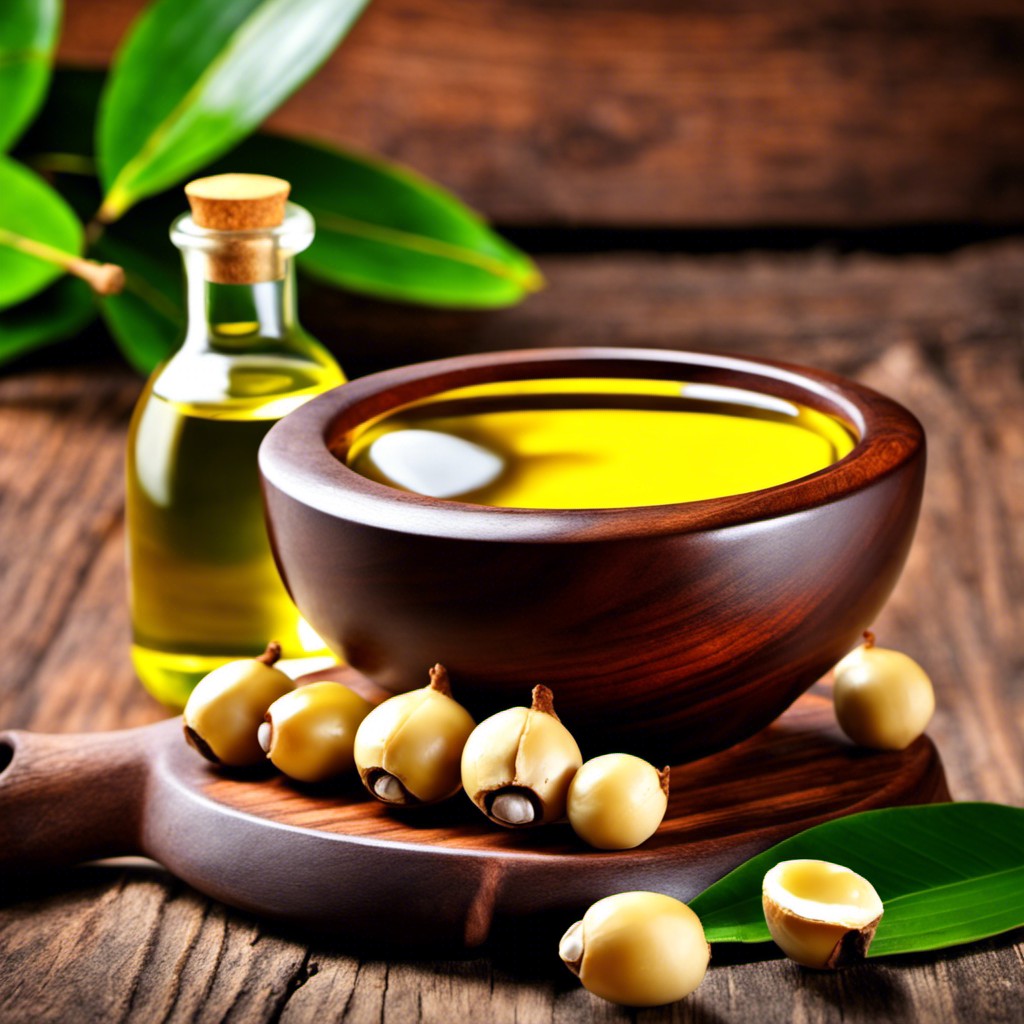Last updated on
Discover the world of delightful substitutes for black vinegar as we dive into an array of alternatives that can enhance your culinary creations just as effectively.
Black vinegar is a popular ingredient in many cuisines around the world. It adds a unique flavor to dishes and is often used as a condiment or marinade.
However, if you’re looking for alternatives to black vinegar, you’ve come to the right place! Whether it’s because you can’t find it in your local grocery store or simply want to try something new, there are plenty of options available. In this article, we’ll explore some of the best alternatives to black vinegar that will add an exciting twist to your cooking without breaking the bank.
So let’s get started!
Balsamic Vinegar
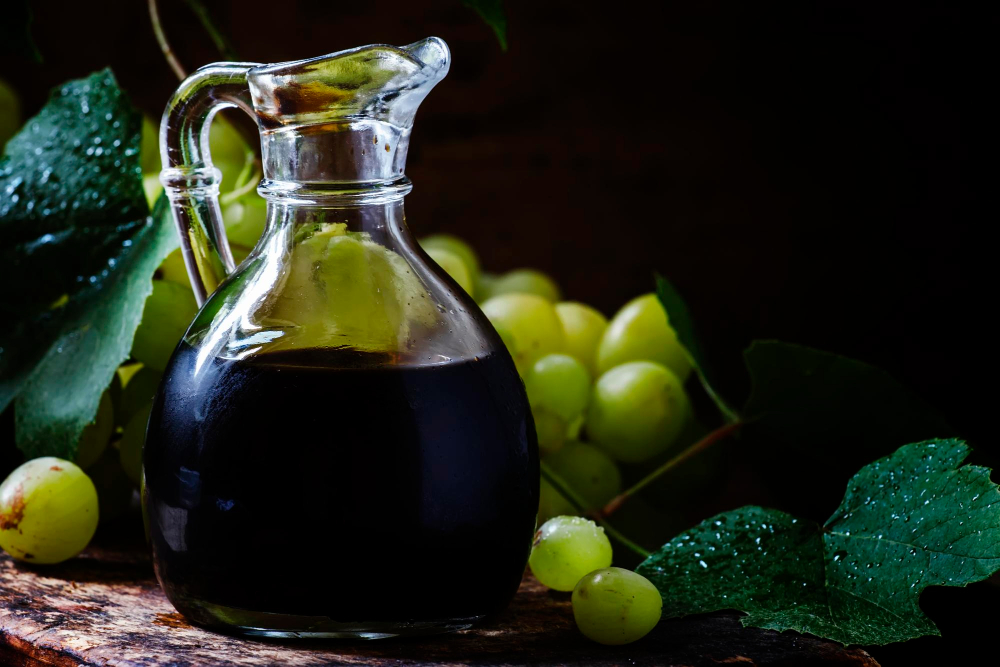
It has a sweet and tangy flavor that can add depth to any dish. Made from grapes, balsamic vinegar is aged in wooden barrels for several years, which gives it its distinct taste.
One of the best things about balsamic vinegar is its versatility. You can use it as a salad dressing or marinade, drizzle it over roasted vegetables or grilled meats, or even use it as a dip for bread.
When using balsamic vinegar as an alternative to black vinegar in recipes that call specifically for the latter ingredient’s unique smoky flavor profile – such as Chinese dishes like hot and sour soup – you may want to mix some Worcestershire sauce with your Balsamic Vinegar substitute instead of using plain Balsamic Vinegar alone.
Red Wine Vinegar
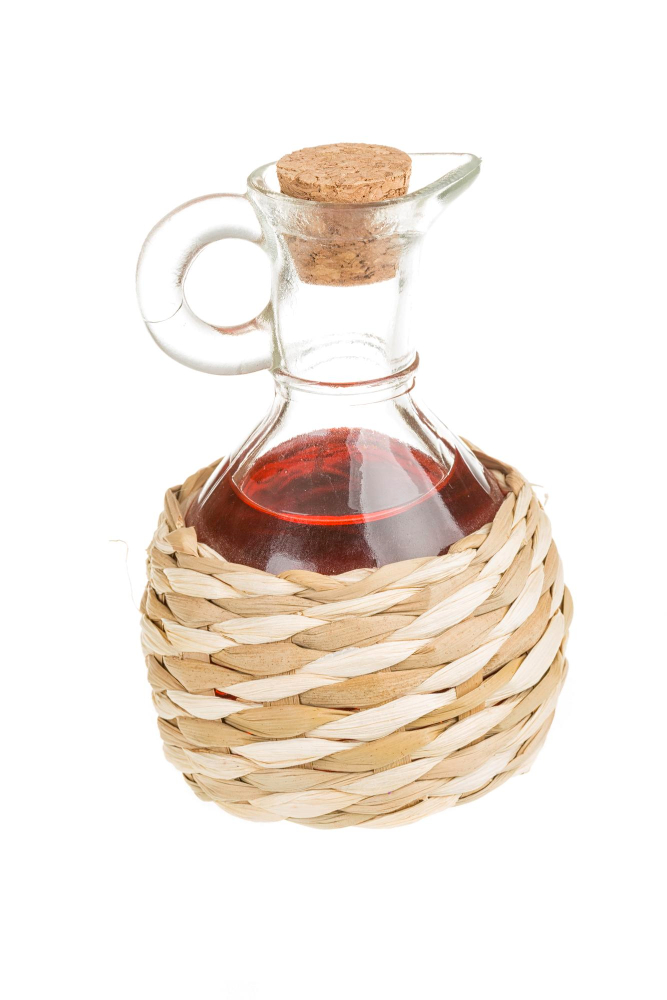
Made from red wine, this vinegar has a tangy flavor with hints of fruitiness and oak. It’s perfect for marinades, dressings, and sauces.
One of the great things about using red wine vinegar as an alternative is its versatility in cooking. You can use it in place of black vinegar in many recipes without altering the taste too much.
However, keep in mind that it does have a stronger flavor than some other vinegars like white or rice.
When choosing which brand or type of red wine vinegar to use as an alternative for black vinegar, consider the acidity level you need for your recipe since different brands may vary slightly on their acidity levels.
White Wine Vinegar
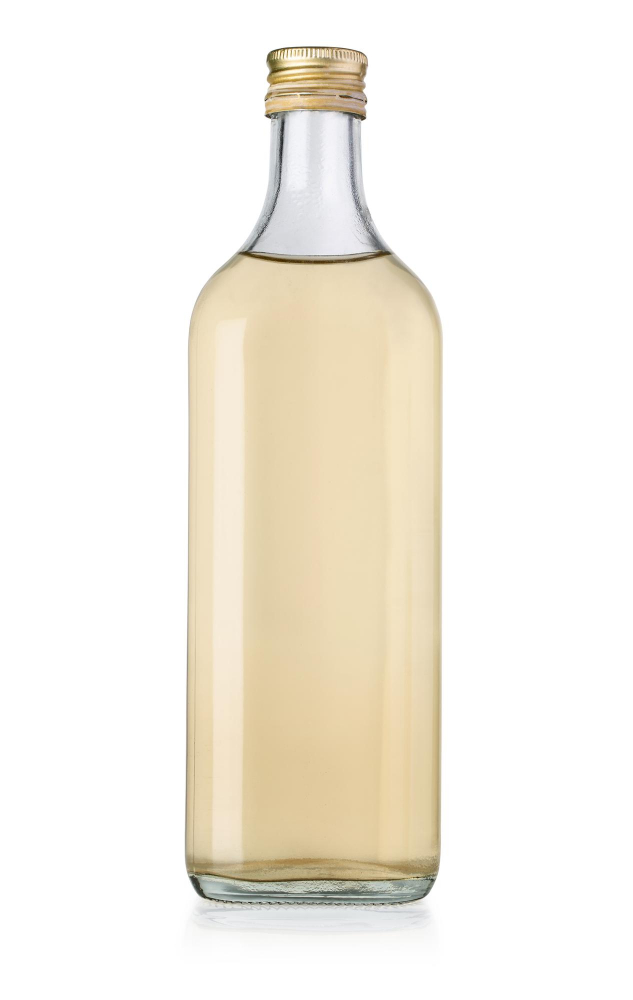
It’s made by fermenting white wine, which gives it its distinctive taste and aroma. White wine vinegar is often used in salad dressings, marinades, and sauces because of its mild acidity.
One of the benefits of using white wine vinegar as an alternative to black vinegar is that it has a milder flavor profile. This makes it ideal for recipes where you want the acidity without overpowering other flavors in the dish.
When choosing white wine vinegar as an alternative, look for varieties that are aged at least six months or longer. The longer aging process allows for more complex flavors to develop and results in a higher quality product.
Apple Cider Vinegar
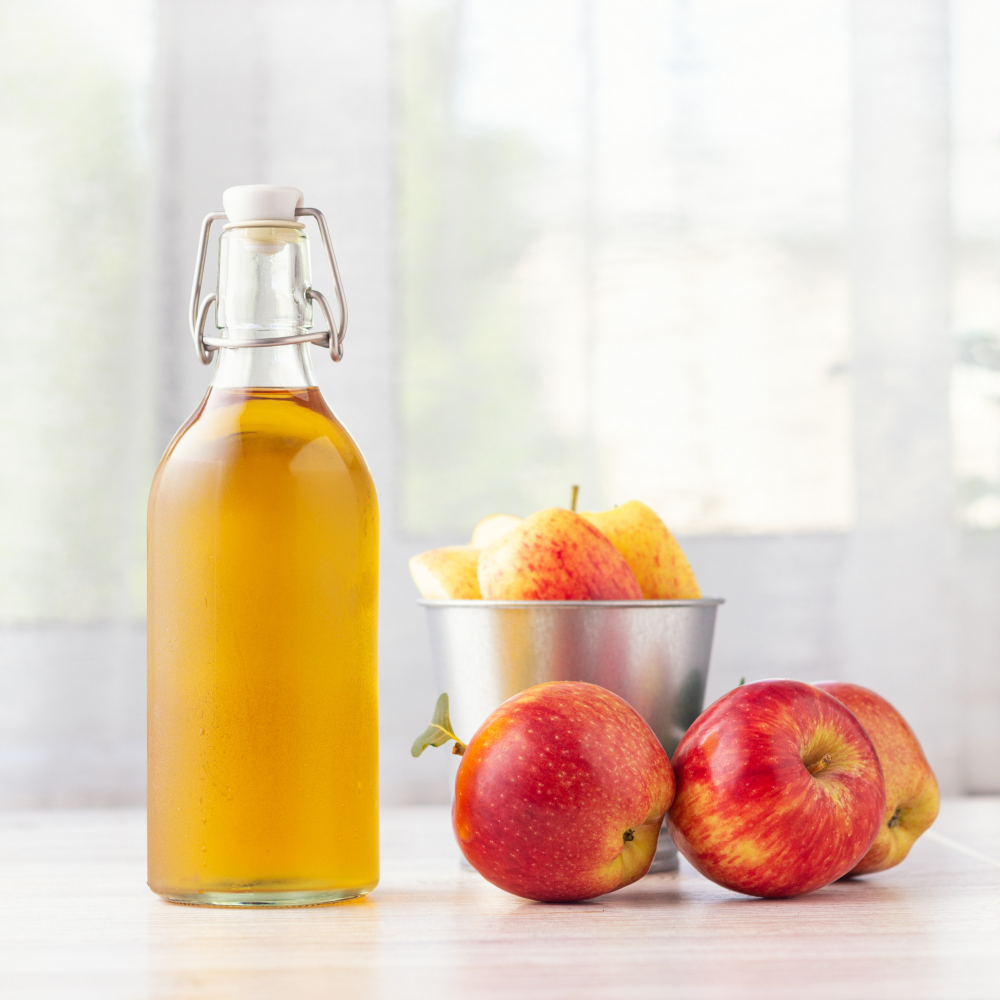
Made from fermented apples, it has a slightly sweet taste with a tangy kick. It’s also known for its health benefits, such as aiding digestion and boosting the immune system.
In terms of flavor profile, apple cider vinegar is milder than black vinegar but still adds depth to dishes like stir-fries or salad dressings. It pairs well with honey or maple syrup when used as a marinade for meats or vegetables.
When choosing an apple cider vinegar substitute, keep in mind that not all brands are created equal. Look for organic options without added sugars or preservatives to ensure you’re getting the best quality product possible.
Rice Vinegar
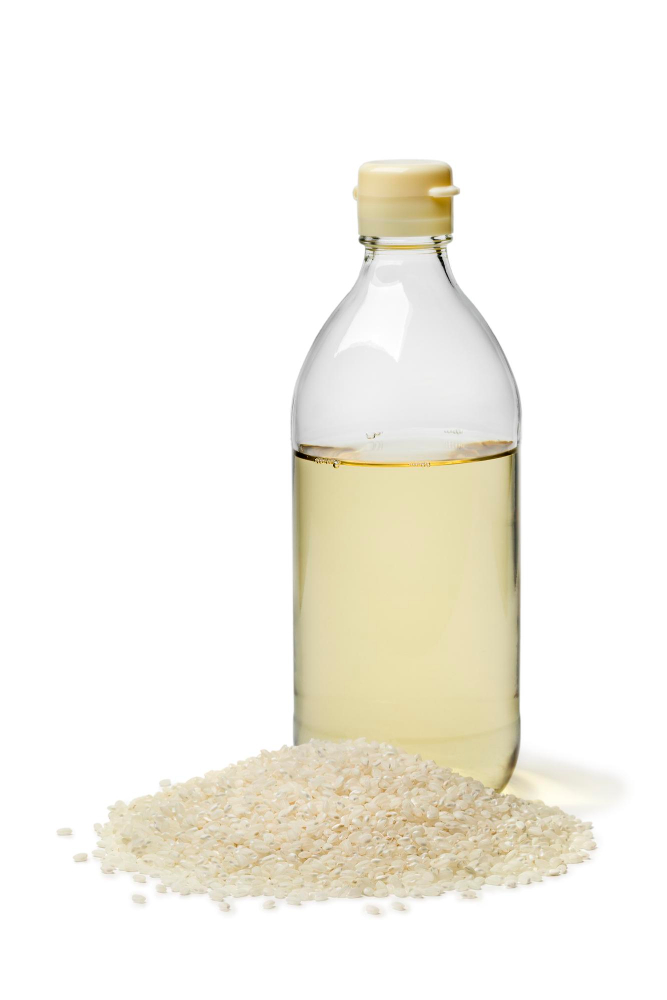
It has a mild and slightly sweet flavor that makes it perfect for dressings, marinades, and dipping sauces. Made from fermented rice wine, this type of vinegar is less acidic than other types of vinegars.
One great thing about rice vinegar is its versatility in cooking. It can be used as a substitute for black vinegar in many recipes without altering the taste too much.
Rice Vinegar also comes in different varieties such as seasoned or unseasoned which gives you more options when using it.
When choosing rice vinegar as an alternative to black one should consider the recipe’s requirements carefully since they have distinct flavors that may not always complement each other well.
Malt Vinegar
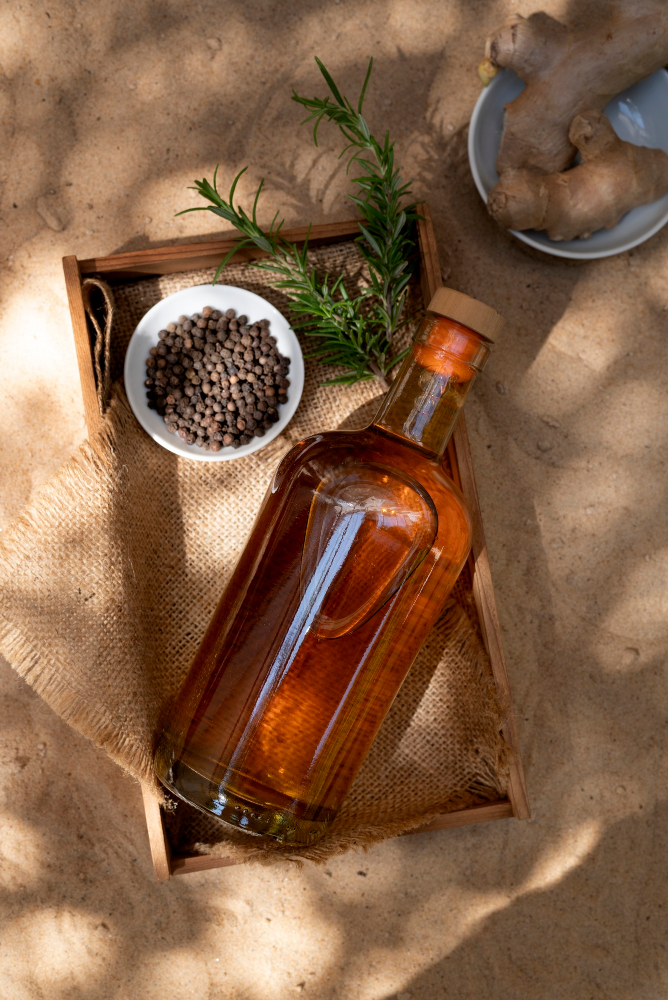
It’s made from malted barley and has a distinctively sweet, nutty flavor that pairs well with fish and chips, salads, and roasted vegetables. Malt vinegar also contains acetic acid which gives it the same tangy taste as black vinegar.
One of the benefits of using malt vinegar as an alternative to black vinegar is its affordability. It’s widely available in most grocery stores at an affordable price point compared to other types of vinegars.
When substituting malt vinegar for black vinegar in recipes, keep in mind that it may alter the overall flavor profile slightly due to its sweetness. However, this can be easily adjusted by adding more salt or sugar depending on your preference.
Sherry Vinegar
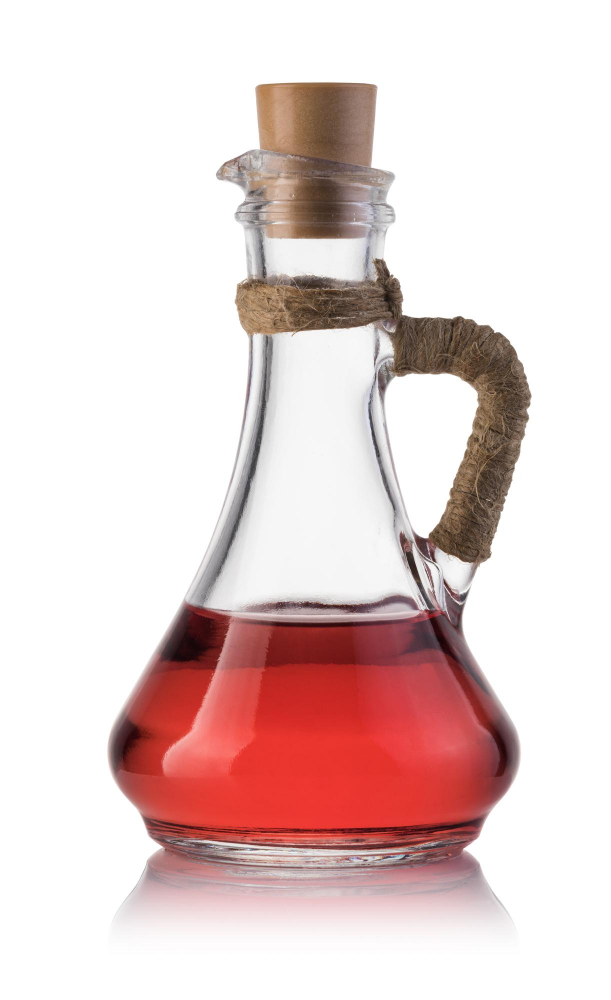
Made from sherry wine, this type of vinegar has a complex flavor profile that includes notes of nuttiness and sweetness. It’s often used in Spanish cuisine, particularly for making gazpacho and other cold soups.
One advantage of using sherry vinegar as a substitute for black vinegar is that it’s widely available in most grocery stores. You can also find it online if you’re having trouble locating it locally.
When using sherry vinegar as a replacement for black vinegar, keep in mind that its flavor may be slightly milder than the latter. However, you can adjust the amount according to your taste preference or add some sugar or honey to enhance its sweetness.
Coconut Vinegar
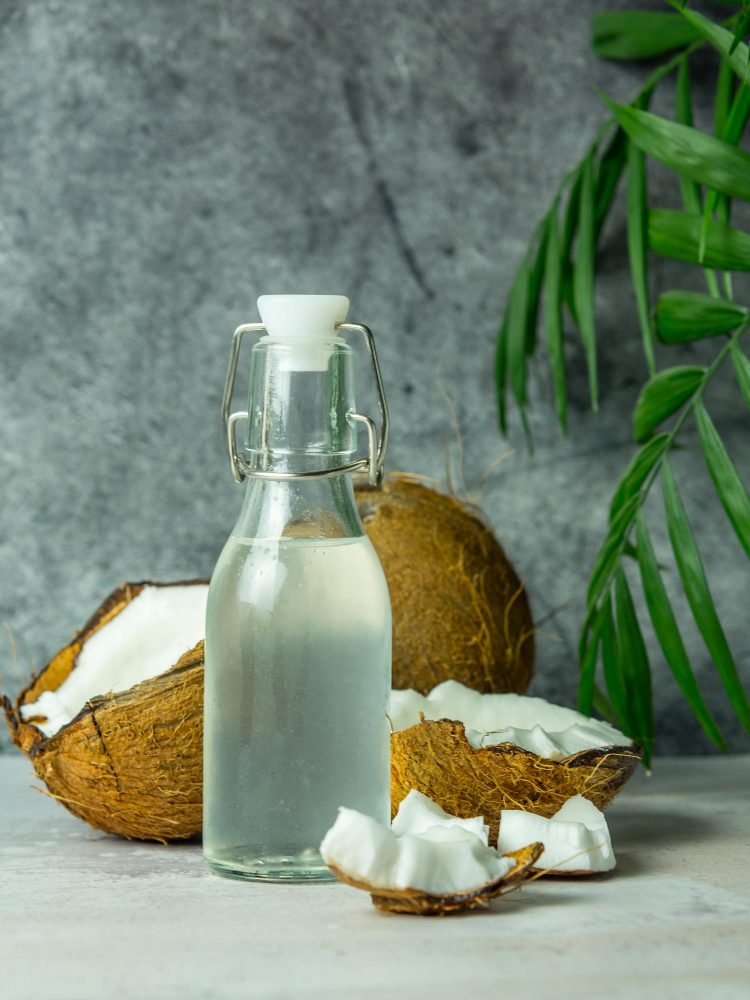
Made from the sap of coconut flowers, this vinegar has a slightly sweet and tangy flavor that works well in many dishes. It’s also rich in vitamins and minerals, making it a healthy addition to your diet.
One of the great things about coconut vinegar is its versatility. It can be used as a marinade for meats or vegetables, added to sauces or dressings for an extra kick of flavor, or even used as a substitute for rice wine vinegar in sushi recipes.
When using coconut vinegar as an alternative to black vinegar, keep in mind that it does have its own distinct taste profile. While both vinegars are acidic and slightly sweet, black vinegar tends to have more depth and complexity than coconut vinegar.
Cane Vinegar
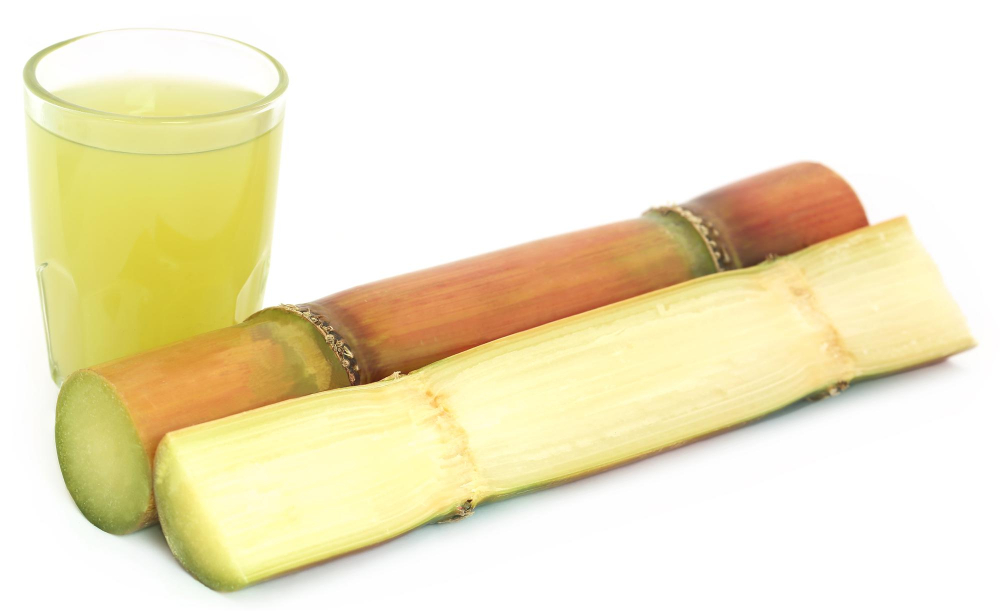
It has a mild, sweet flavor with a hint of caramel and is commonly used in Southeast Asian cuisine. Cane vinegar can be used as a marinade for meats or seafood, added to sauces and dressings, or even drizzled over fresh vegetables.
One of the benefits of using cane vinegar is its health properties. It contains antioxidants that help fight inflammation and boost your immune system.
It has acetic acid which aids digestion by breaking down food more efficiently.
When substituting black vinegar with cane vinegar in recipes, keep in mind that they have different flavors so you may need to adjust the amount accordingly based on personal preference.
Saba Vinegar
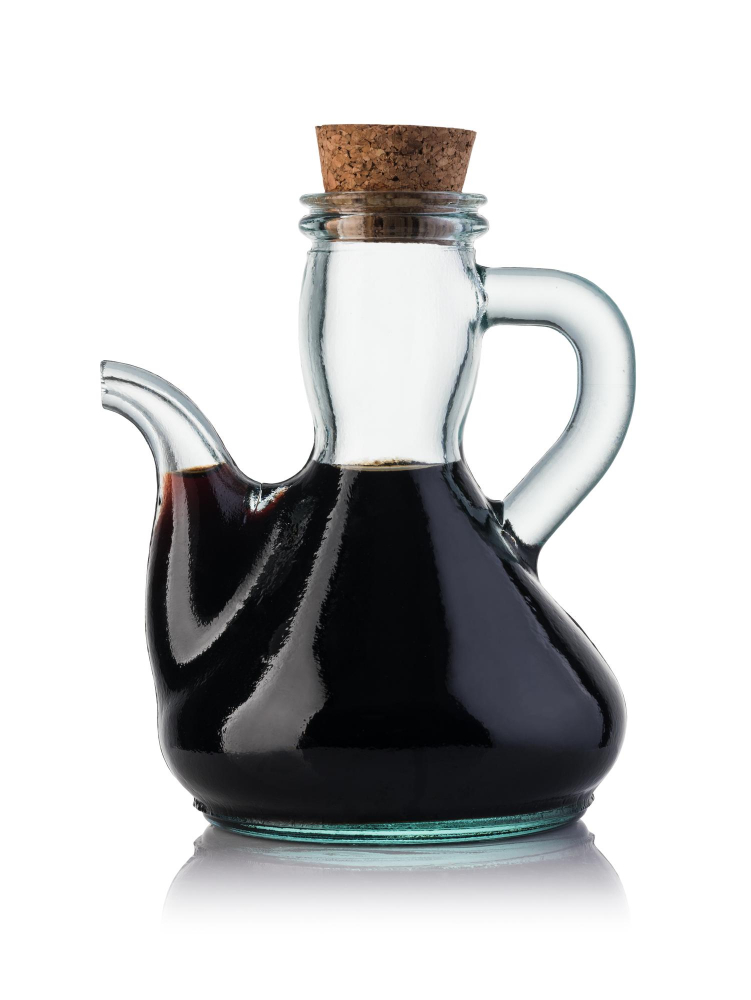
It’s then cooked down until it becomes thick and syrupy with a sweet flavor that’s similar to balsamic vinegar. Saba can be used in many of the same ways as balsamic vinegar but has a milder taste.
If you’re looking for an alternative to black vinegar that will add sweetness to your dishes without overpowering them, saba might be just what you need. Its unique flavor profile makes it perfect for drizzling over roasted vegetables or using as a glaze on meats like pork or chicken.
One thing to keep in mind when using saba is its consistency; because it’s so thick and syrupy, you may want to dilute it with some water before using it in recipes where liquid ingredients are required. This will help ensure that your dish doesn’t become too sweet or sticky.
Date Vinegar

Made from fermented dates, this vinegar has a sweet and tangy taste with hints of caramel and molasses. It’s commonly used in Middle Eastern cuisine as well as in dressings, marinades, and sauces.
One of the benefits of using date vinegar is its nutritional value. Dates are rich in vitamins and minerals such as potassium, magnesium, iron, and vitamin B6 which makes it an excellent source for healthy eating.
When substituting black vinegar with date vinegar use equal amounts or adjust according to your preference since they have different flavors but both work well when added into stir-fries or salads.
White Rice Vinegar
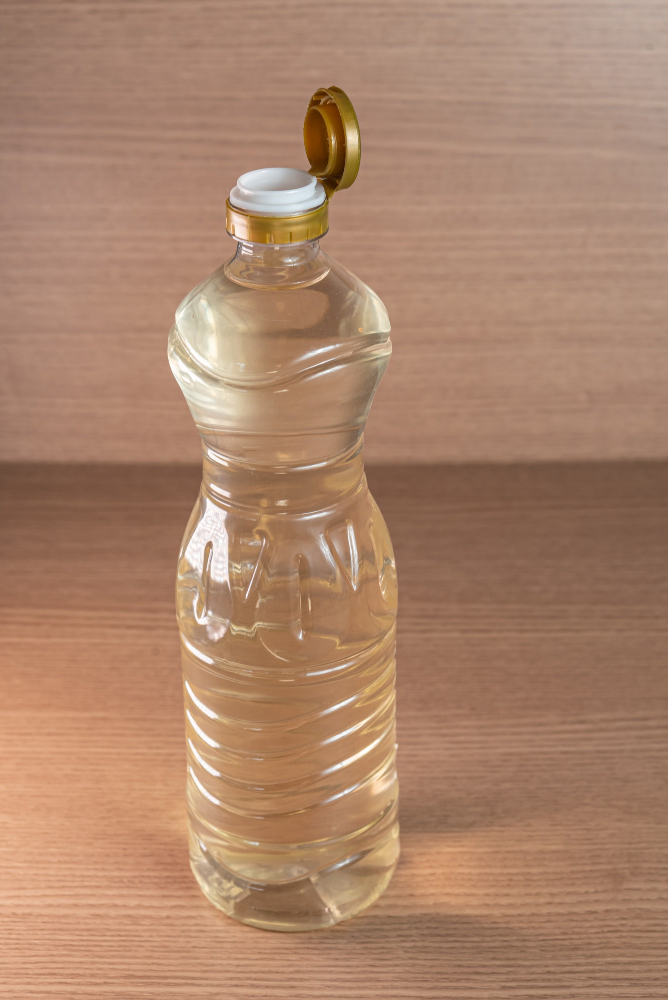
It’s made from fermented rice and has a mild, slightly sweet flavor that makes it perfect for dressings, marinades, and dipping sauces. This type of vinegar is also commonly used in sushi rice seasoning.
One of the benefits of using white rice vinegar as an alternative to black vinegar is its affordability. It’s widely available at most grocery stores and can be purchased at a fraction of the cost compared to other types of vinegars.
When substituting white rice vinegar for black vinegar in recipes, keep in mind that they have different taste profiles. White rice vinegar has a milder flavor than black vinegars which are more pungent with hints of smokiness or sweetness depending on their origin.
White Vinegar
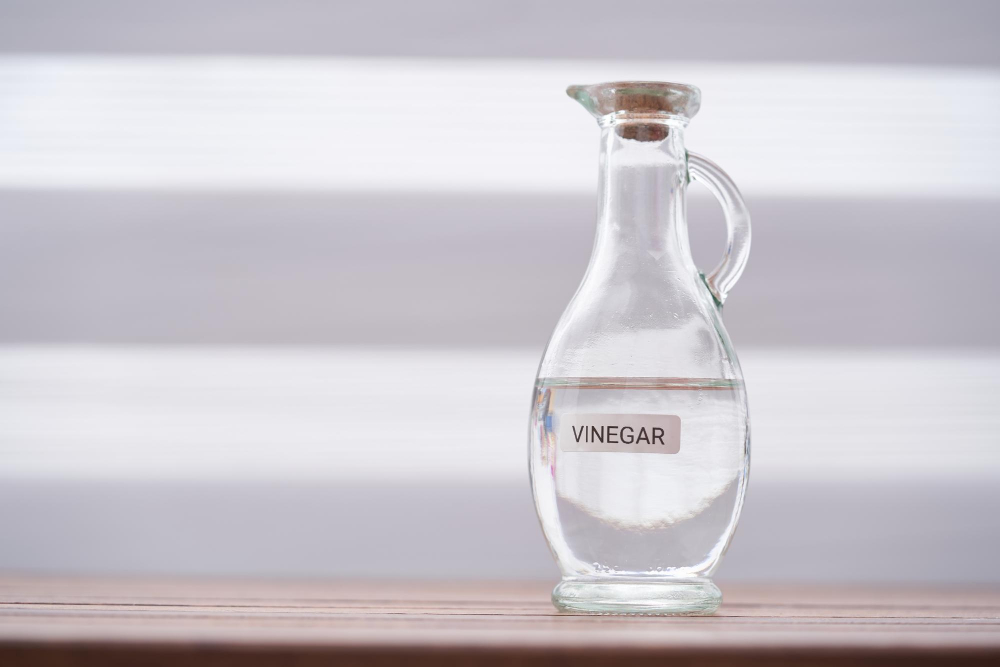
It’s made from fermented grain alcohol, which gives it a sharp and acidic taste that can be used in many dishes. White vinegar is often used as a cleaning agent or for pickling vegetables, but it can also be used in cooking.
When using white vinegar as an alternative to black vinegar, keep in mind that the flavor profile will differ significantly. White vinegar has a much sharper taste than black vinegars’ mellow sweetness; therefore, you may need to adjust your recipe accordingly.
One way to use white wine instead of black wine is by mixing one tablespoon of white wine with one teaspoon of sugar or honey per tablespoon of the original recipe’s required amount. This mixture will help balance out the acidity while adding some sweetness back into your dish.
Worcestershire Sauce
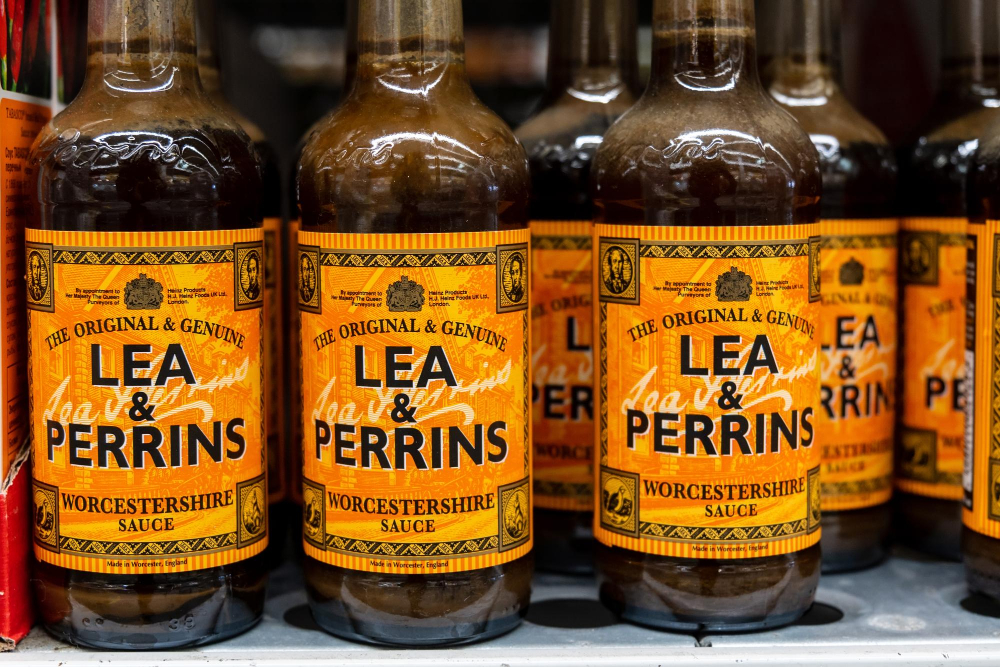
It has a complex flavor profile, with hints of sweetness, sourness, and umami. This sauce is made from anchovies, garlic, onions, molasses and other ingredients that are fermented for several months before being bottled.
When using Worcestershire sauce as a substitute for black vinegar in your recipes it’s important to note that the flavors are not identical but they do share some similarities. The tangy taste of Worcestershire pairs well with meats such as beef or pork and can add depth to marinades or sauces.
If you’re looking for an alternative way to use Worcestershire Sauce try adding it into your stir-fry dishes instead of soy sauce or oyster sauce. You’ll get the same savory flavor without overpowering the dish with saltiness.
Citrus Juice
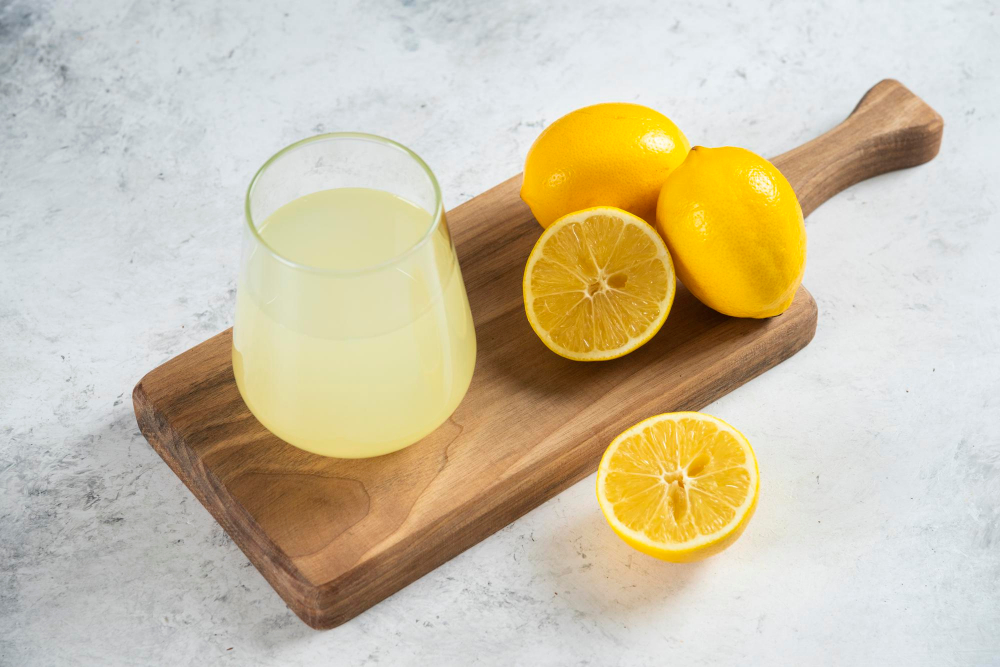
Lemon, lime, and orange juices are all excellent substitutes that can add a tangy flavor to your dishes. Citrus juices work particularly well in marinades for fish or chicken and can also be used as a salad dressing base.
For an extra kick of sweetness, try mixing the citrus juice with honey or agave nectar before using it in your recipe. When choosing which type of citrus juice to use as a substitute for black vinegar, consider the dish you’re making and what flavors will complement it best.
Lemon juice works well with seafood dishes while lime pairs perfectly with Mexican-inspired cuisine like tacos or guacamole. Experimenting with different types of citrus juices can lead you down an exciting path towards discovering new flavor combinations that will elevate your cooking game!
Lemon Juice With Honey
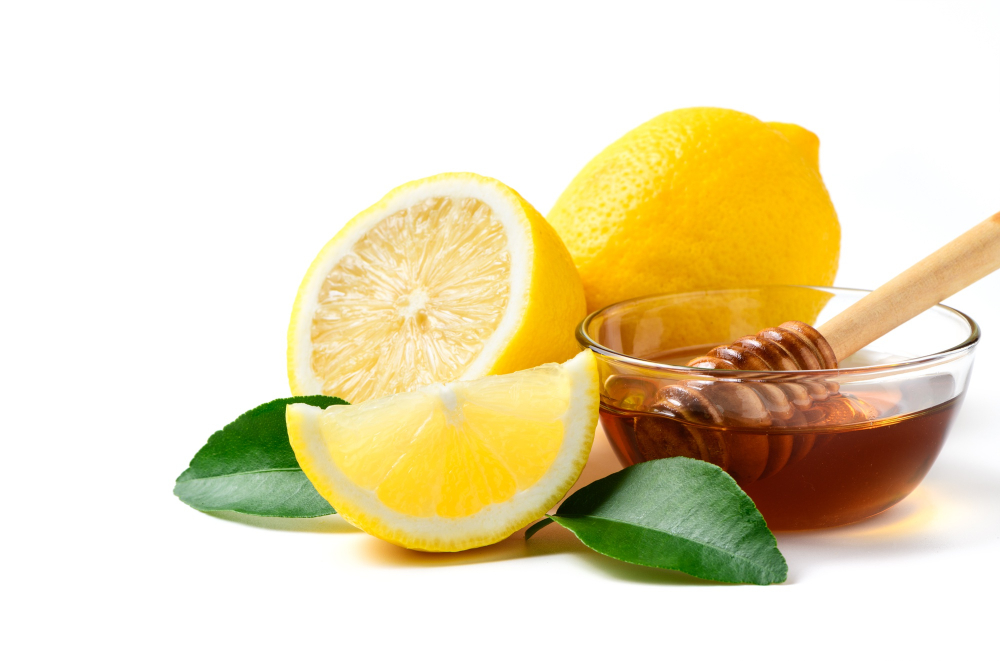
The combination of tart lemon juice and sweet honey creates a flavor profile that can add depth to your dishes. This substitute works particularly well in marinades or dressings for salads.
To make this substitute, mix equal parts fresh-squeezed lemon juice and honey until the mixture is smooth. You can adjust the ratio based on your personal preference – if you prefer it sweeter, add more honey; if you prefer it more acidic, add more lemon juice.
One thing to keep in mind when using this substitute is that it may not work as well in recipes where black vinegar provides a distinct color or aroma. However, its unique taste makes up for any differences in appearance or scent.
Using Lemon Juice with Honey as an alternative to Black Vinegar will give your dish a refreshing twist while keeping costs low!
Lime Juice With Honey
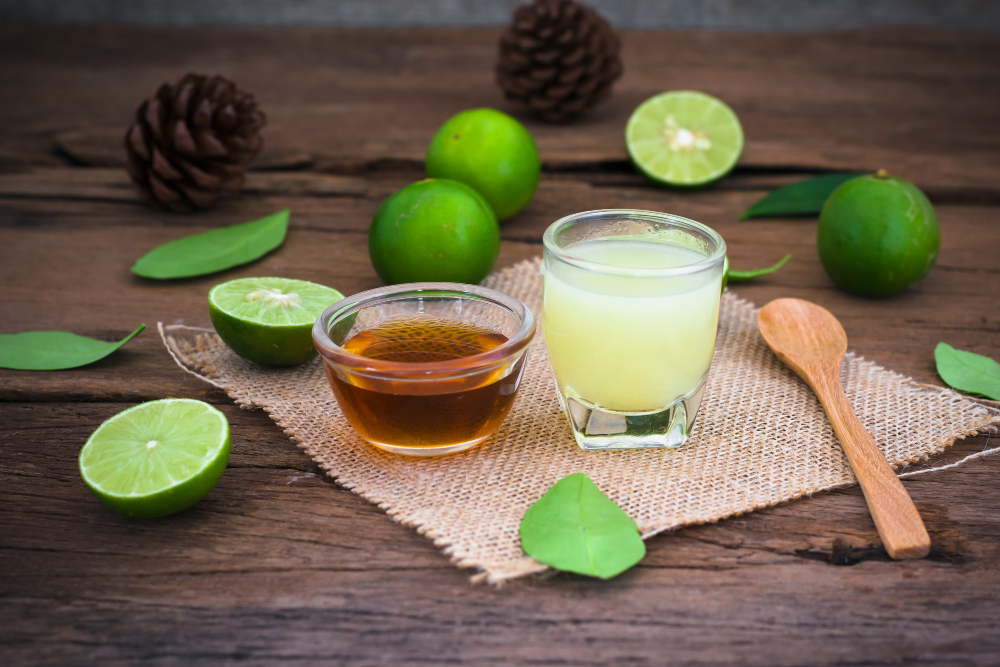
This combination provides a sweet and tangy flavor that can be used in dressings, marinades, and sauces. Lime juice has a similar acidity level to black vinegar, while the honey adds sweetness that balances out the tartness of the lime.
To make this substitute at home, mix one tablespoon of fresh lime juice with half a tablespoon of honey until well combined. When using this substitute in recipes that call for black vinegar as an ingredient or condiment, it’s important to keep in mind its unique taste profile so as not to overpower other flavors present in your dish.
Lime juice with honey works particularly well when paired with seafood dishes or salads containing fruits like mangoes or papayas. If you’re looking for an affordable and delicious alternative to black vinegar without compromising on flavor quality – give lime juice mixed with honey a try!
Apple Juice

It may not have the same acidity as vinegar, but it can add a sweet and fruity flavor to your dishes. Apple juice works well in marinades for pork or chicken, and it’s also great in salad dressings.
To use apple juice as a substitute for black vinegar, mix one part of apple juice with one part of white wine or rice vinegar to get the right balance of sweetness and acidity. When choosing an alternative to black vinegar, consider what flavors you want to bring out in your dish.
Apple juice is perfect if you’re looking for something sweet that won’t overpower other ingredients’ taste while still adding depth and complexity without breaking the bank!
Comparing Taste Profiles

While some alternatives may have a similar acidity level, they can differ in flavor and aroma. For example, balsamic vinegar has a sweet and tangy taste that works well in salad dressings or as a marinade for meat dishes.
On the other hand, rice vinegar has a milder flavor that is perfect for sushi rice or pickling vegetables.
Red wine vinegar is another popular alternative with its bold and robust flavor that pairs well with red meats like beef or lamb. White wine vinegar offers more subtle notes but still adds depth to sauces and vinaigrettes.
Apple cider vinegar provides an earthy sweetness while coconut vinegars offer tropical undertones making them ideal choices when cooking Asian-inspired dishes.
Ultimately, the choice of which alternative to use will depend on personal preference as well as what dish you’re preparing.
How to Choose the Right Substitute

Here are some factors to consider when selecting a substitute:
1. Flavor profile: Consider the flavor of the dish you’re making and choose a substitute that complements or enhances it.
2. Acidity level: Black vinegar has an acidity level of around 4-5%, so look for substitutes with similar levels.
3. Color: If you’re using black vinegar for its color as well as its flavor, consider substitutes like balsamic or saba vinegars that have a dark hue.
4. Availability and cost: Some substitutes may be more readily available in your area than others, while some may be more expensive than others.
By keeping these factors in mind, you can select the perfect alternative to black vinegar that will elevate your dishes without compromising on taste or quality!
FAQ
Can I replace black vinegar with white vinegar?
Yes, you can replace black vinegar with white vinegar, as it is a mild vinegar with a sour flavor, suitable for salad dressings, marinades, and dipping sauces.
What tastes like black vinegar?
White rice vinegar, rice wine vinegar, and balsamic vinegar can taste like black vinegar.
Is black vinegar same as balsamic vinegar?
No, black vinegar and balsamic vinegar are not the same; black vinegar is made from grains and aged in clay pots, while balsamic vinegar is made from grape juice and aged in barrels.
What is a substitute for vinegar in dumplings?
A suitable substitute for vinegar in dumplings is a combination of lemon or lime juice and soy sauce, specifically using 2 teaspoons of lemon juice and 1 teaspoon of soy sauce for every 1 tablespoon of Chinkiang vinegar.
Can apple cider vinegar be used as a substitute for black vinegar in certain recipes?
Yes, apple cider vinegar can be used as a substitute for black vinegar in certain recipes.
How does the acidity level of rice vinegar compare to that of black vinegar when used in cooking?
Rice vinegar has a milder acidity level compared to black vinegar in cooking.
In what specific dishes can malt vinegar be used as a replacement for black vinegar?
Malt vinegar can replace black vinegar in dishes such as fish and chips, coleslaw, pickles, and marinades.
Recap
Liked this article? Here's what you can read next:

